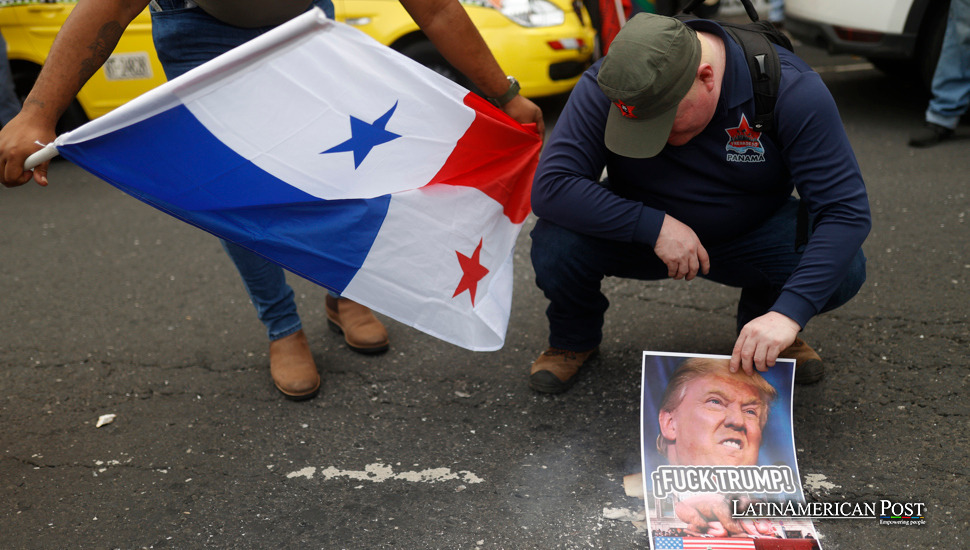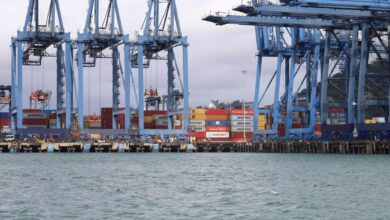Panama’s Sovereignty Must Triumph Over Trump’s Canal Threats

Panama is determinedly against President-elect Donald Trump’s outrageous plan to reclaim control of the Panama Canal. Trump’s words have reopened an old argument, highlighting Panama’s battle for canal control, the United States’ dominant part in its creation, and its broader effects on world diplomacy.
How the US Gained the Canal
The Panama Canal’s history is full of mystery, big ambitions, and global dealings. In the late 1800s, Colombia ruled the land that later became Panama. However, in 1903, the United States, led by President Theodore Roosevelt, helped Panama gain independence from Colombia, trading this freedom for control over the canal area. The US had long wanted to create a waterway connecting the Atlantic and Pacific oceans. Colombia’s resistance to a treaty that would cede territory to the US led to Roosevelt’s intervention.
The Hay-Bunau-Varilla Treaty between the newly formed Panamanian government and the US granted Washington control over the canal zone in perpetuity. The canal was finished in 1914, showing US engineering skills and power in world politics. However, for Panama, the deal seemed like losing control over their country. For many years, people in Panama saw the US presence in the canal area as an insult to their freedom.
The fight for control grew stronger during the 1900s, reaching a peak with the 1977 Torrijos-Carter Treaties. Signed by Panamanian leader Omar Torrijos and US President Jimmy Carter, the treaties gradually allowed Panama to regain control of the canal. By December 31, 1999, the canal was fully transferred to Panama, marking a triumphant moment for the nation.
Trump’s Claims Resurface Colonial Tensions
President-elect Trump’s recent talk about taking back the Panama Canal sounds like old imperialistic ideas. At a conservative meeting in Phoenix, Trump stated that the canal was “falling into the wrong hands,” referring to supposed Chinese control in the area. His words received a quick reaction from Panamanian President José Raúl Mulino, who stressed that the canal is and will always be a permanent part of Panama’s authority.
Mulino’s reply emphasized Panama’s long struggle for freedom and the canal’s deep emotional and symbolic value to the country. “Every square meter of the Panama Canal belongs to Panama and will continue to do so,” Mulino stated in a video address, rejecting Trump’s threats as an affront to the country’s autonomy. Mulino also noted that the canal has been managed efficiently since its handover, contrary to Trump’s claims of mismanagement.
The canal’s history as a center for nationalism and pride shows how sensitive specific comments are. January 9 is remembered as Martyr’s Day in Panama, honoring the people who died in protests against US control in 1964. For Panamanians, the canal is more than just a construction project; it is a significant symbol of their strength and identity.
A Global Chokepoint: Why the Panama Canal Matters
The Panama Canal is not just a national symbol but a key route for world trade. It links the Atlantic and Pacific oceans, and the 51-mile canal allows about 4% of global trade to travel smoothly. Items like Chilean copper, Ecuadorean bananas, and US-liquefied natural gas show the canal’s strategic importance.
Its excellent engineering can be seen in its freshwater locks, which work like elevators. They lift ships nearly 90 feet above sea level before lowering them back down. Unlike the Suez Canal and other waterways, Panama relies on freshwater, which makes it vulnerable to environmental changes. Recent droughts have forced the canal authority to limit traffic and raise tolls to keep operations going.
Trump’s comments about Chinese influence might be alarming but mirror more significant geopolitical trends. China is Latin America’s biggest trade partner, and its expanding economic role in the area has probably caused concern in Washington. Although Chinese companies run ports near the canal, the waterway remains firmly under Panamanian control, managed by the Panama Canal Authority. Chinese Foreign Ministry spokesperson Mao Ning recently highlighted respect for Panama’s independence, calling Trump’s comments unfounded.
The Broader Implications of Trump’s Provocations
Trump’s comments on reclaiming the canal reveal his firm stance on foreign policy and business-minded global affairs outlook. By labeling the canal’s transfer as a “loss” for the U.S., Trump ignores the complex history and legal accords related to Panama’s independence. The 1977 Torrijos-Carter Treaties maintain the canal as always neutral, permitting ships from every country to pass freely. These treaties are important for relations between the US and Panama, allowing the US to act militarily only to protect the canal’s neutrality, not to own it.
Trump’s words might upset these carefully made agreements. Saying that the US might ask for the canal’s return challenges years of diplomatic work and could harm relationships with other Latin American countries. Colombian President Gustavo Petro already supported Panama, suggesting possible regional pushback against US actions.
Also, Trump’s comments about the canal and his larger foreign policy agenda show a trend of using economic and military threats to reach geopolitical goals. He once suggested a sea blockade of Mexico and plans to use special forces to defeat the drug cartels, which show a brutal plan to protect US interests over international law and cooperation.
Panama’s Stand: A Model of Sovereignty and Diplomacy
Panama’s able response to Trump is a shining beacon for small nations in defense of their autonomy from more extensive powers. President Mulino’s focus on the canal as a source of pride and economy proves how important self-government becomes in times of threat from the outside.
When Panama took over the canal, it invested billions in renovations, like building more large locks to accommodate modern shipping. These improvements have made the canal even more efficient and restored it to a center of international trade. Despite challenges like droughts and changing demand, the canal has played a significant role in Panama’s economy, bringing in $2.5 billion for the national treasury last year.
Panama’s approach also highlights the more significant problem of how Latin American countries deal with the global order. As China’s power expands in the region, nations such as Panama must strike a balance between economic opportunities and remaining independent. Mulino’s unequivocal repudiation of Trump’s threat signals that Panama really does care about its sovereignty and will not be conscripted into surrendering it.
The Canal as a Symbol of Resistance
The Panama Canal makes the Panamanians famous and proud. The island’s history, from the laborious erecting to its eventual capture, is part of the story of Latin America’s broader struggle for independence. Trump’s vows of retaking the canal forget this and could open old wounds.
Trump’s demands have not compromised Panama’s dedication to independence and international law. While more prominent countries fight for power in the area, Panama’s firmness shows that smaller nations still declare autonomy and protect their rights worldwide.
Also Read: How Could Latinos Back Trump? HBO Explains
The Panama Canal is more than a path for ships; it is an example of bravery, national pride, and progress. By rejecting Trump’s demands, Panama stayed independent and stayed true to the principles of fairness and respect that guide international relations.




